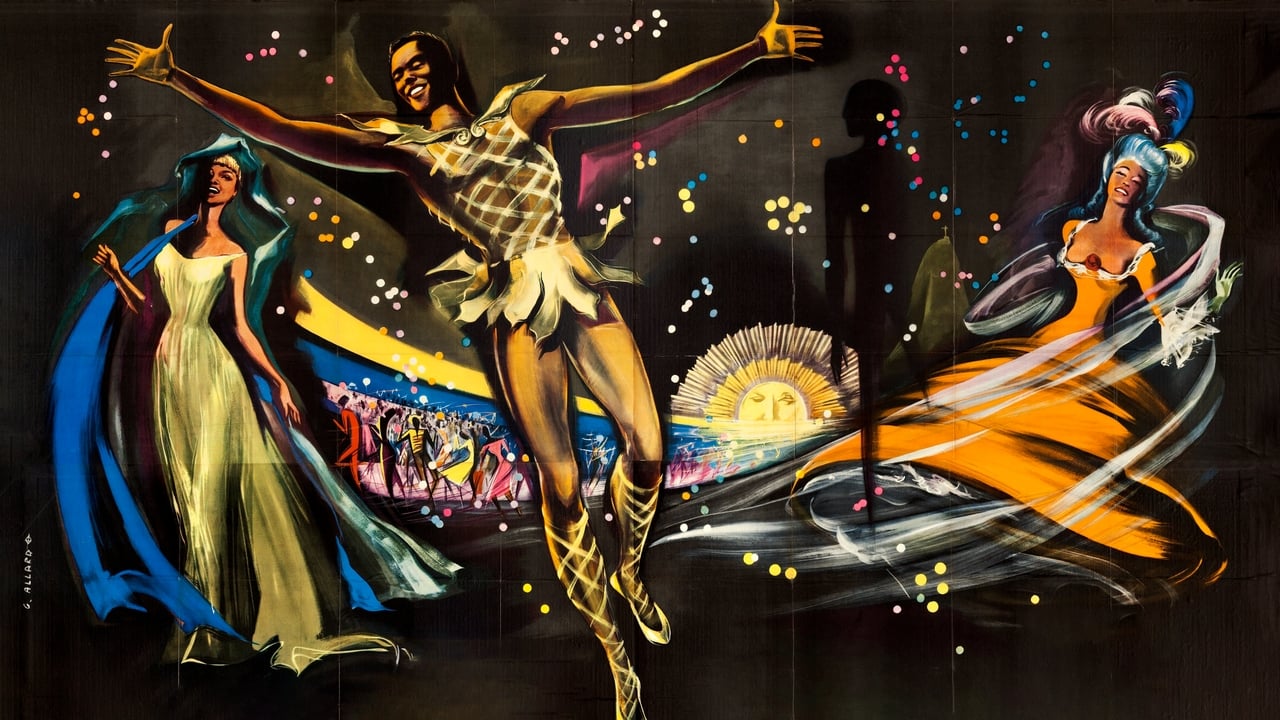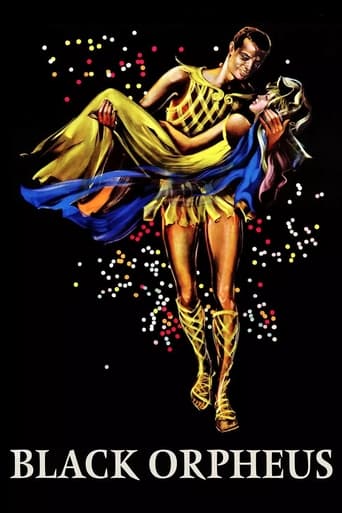



The performances transcend the film's tropes, grounding it in characters that feel more complete than this subgenre often produces.
View MoreThis is a coming of age storyline that you've seen in one form or another for decades. It takes a truly unique voice to make yet another one worth watching.
View MoreI think this is a new genre that they're all sort of working their way through it and haven't got all the kinks worked out yet but it's a genre that works for me.
View MoreOne of the worst ways to make a cult movie is to set out to make a cult movie.
View Moreafter few good years from I saw it, the memories are are about its poetry. a poetry including samba and Rio and voodoo and Latino spirit and crumbs from Cocteau universe and social references and folklore and impeccable acting. the same Ancient story. only the frame is different. and it remains different in a special manner. because it is a love story from the "50. the mark of decade is the basic source of seduction /interest today. and the web of dance, dialogues and carnival. the shining skin and the rhythm of music. the air of dream and the exotic flavors. a film who remains great today like in its period. because it is , in profound sense, one of the cinematography purpose definition.
View MoreI agree with the reviewer who says it is a successful attempt to recreate an old myth in modern times, but take it a step further and add it is a magnificent attempt, one that has not gotten the attention it deserves.As a young adult, seeing it made me look at film story-telling in a different perspective; how an ensemble of actors, with a great screenplay, can take a story written in the clouds and bring it down to earth so easily and realistically. I can tell you that I only had the desire to see it once, but it has stayed with me as one of those enlightened moments, and in black and white, as it should be.I think it is a classic, made at a time when the world was on the verge of transformation, yet not quite there yet, which makes it all the more remarkable.
View MoreI know using the myth of Orpheus and Eurydice is considered an admirable things about this film, but I thought it added nothing to the plot and, in fact, wrenched things about in ways that made parts of the film quite incomprehensible. We'll let pass the absurdity of the names that derived from the myth, these Portuguese-speaking Brazilians with names like Orpheus, Eurydice, Hermes and dogs named Cerberus. That was bearable, although it put the film slightly off-kilter. The Orpheus and Eurydice myth really came into play near the end, when Eurydice is lost and Orpheus searches desperately for her. When I was young and first saw this film, not knowing the myth, this section seemed like utter nonsense; today, I see the nonsense is there, and I can see why, because the film maker was willing to shoehorn his story into the myth, no matter the consequences.The essence of the myth is Orpheus descending into the underworld to rescue his wife; he plays his lyre, so beautifully that no one can deny him, not even the guardians of the underworld, who allow him to lead Eurydice out of the underworld, on condition he not look back at her until both are safely back in the world of light. Just as he himself steps out into the light, he looks back, too soon, and Eurydice disappears from him forever. But what has that to do with the story in this film? The film is a modern, realistic love story. In the climactic scene after Orfeus has searched everywhere for Eurydice, he is taken to a crowded room where a voodoo-like ceremony is under way. He is told to "call" for Eurydice if he wants to find her, so he joins in the mass, ritualistic song, so quietly that his voice cannot be heard - quite a departure from the Greek myth. An old woman behind him appears to be possessed by a spirit, and she speaks with the voice of Eurydice, asking Orfeus if he loves her enough to be satisfied with her voice, never to look on her again. He turns to see where the voice is coming from, and all traces of Eurydice disappear. Now where is the sense in this, in terms of the story we have watched up to this point? We've been following an entirely realistic love story for over 90 minutes, in which the woman has gone missing and her lover has been searching desperately for her. Where has she gone? Has she died? Has she been kidnapped? No, an old lady in a voodoo ceremony speaks with her voice. Huh? What's this about? She tells him he must not try to look at her. Say what? Why not? No reason, it's just all nonsense. He turns to look, and we are to believe that he will never find his lover again. Again we ask why not? Does this make any sense at all? No, it doesn't, except in so far that the realistic love story has been wrenched and mangled in order to fit, in a rough sort of way, the plot line of an old Greek myth.The film would have been far better off to provide a proper resolution to the situation, one which fit with the realistic, this-world ethos of the rest of the movie. In my opinion, the use of the myth interfered in a bad way with an otherwise interesting and enjoyable movie.
View MoreThis film has a wonderful reputation and is regarded as a classic, so when I got a copy of the film I was expecting something amazing. And, by the time it was complete, I felt like I just didn't get it--why was this film so highly regarded? Perhaps most of the reason this film left me so cold was that Jean Cocteau's version of the story of Orpheus and Eurydice was so much better--with amazing camera work and acting. On the other hand, "Orfeu Negro" just seemed to have one thing going for it--its intense Samba score. The problem is that after a short time I wanted the music to stop!! The viewing experience was like having ADHD and taking crack--it was just so hyper-kinetic it made me want to scream. As for the story, it sure seemed a lot more superficial--they dance and dance and Orfeu falls for Eurydice so easily--with no real character development or even build up. The citizens of Rio all seem like mindless children--dancing their lives away--a rather patronizing view of the nation! And, because of this, I can see why the Brazilians disliked this one-dimensional view the film gave of them.As I said, I just don't get this film--it didn't do much to satisfy me and I will strongly suggest to my friends they see Cocteau's version instead--it seems much closer to the original source material and is just so much more interesting.
View More